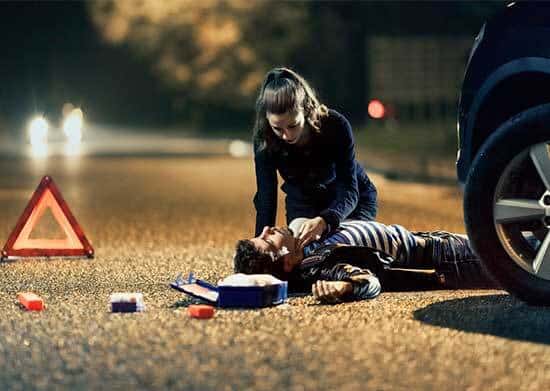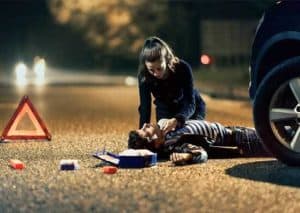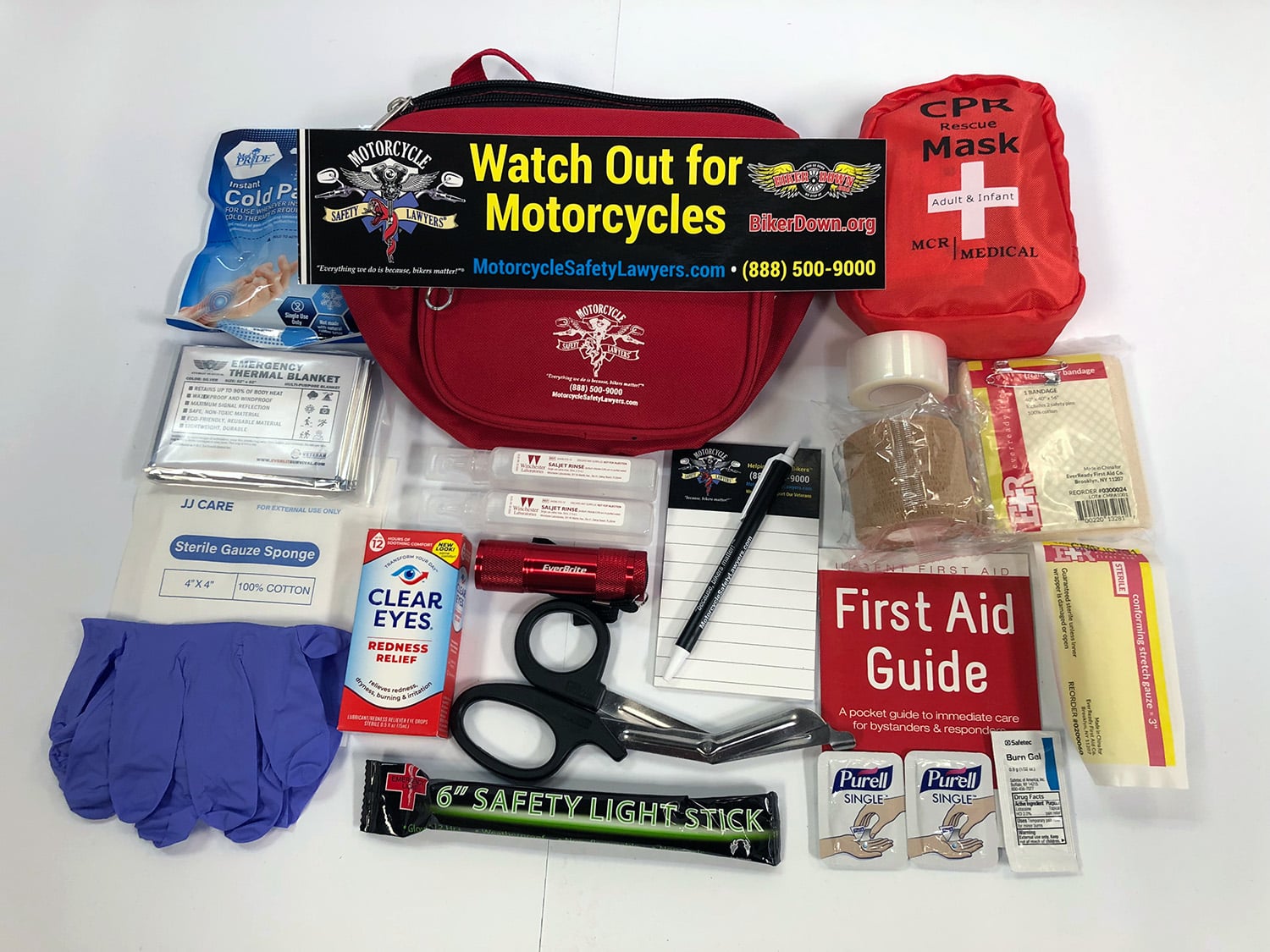Good Samaritan | Accident Management Training for when you need to be one!
Last updated Monday, June 23rd, 2025

The Good Samaritan Law has been in a lot of conversations the last few years with the rash of overdoses being witnessed nationally and leaders seeking a means of saving lives wherever possible. Now that isn’t the only area where this law is important it is the means for the increased conversation around it politically, however.
Illinois, like many states, has a “Good Samaritan” law (officially called the Emergency Medical Services Access Law of 2012) in place to encourage people to seek emergency medical help.
As Chicago motorcycle accident lawyers, we offer ongoing accident management training courses – You can take part in this caregiving, life-saving pieces of training across the nation read about them, and get in touch with us to get enrolled and prepared to be the safe Good Samaritan should you come across a scene that needs you to be one.

Good Samaritan – Accident Scene Management Training
This law is often thought to be the protector law when we witness someone in danger of their life or seriously injured and are compelled to want to help them, be it a car accident, a motorcycle accident, or an overdose. There are circumstances where it is not advisable to be a good samaritan, it is better to call 911 or call for another person nearby to take that role on!
The Illinois Department of Public Health has more details covering these situations and we will learn a lot more about them with the increasing numbers of overdoses across the state and the nation. If for example, you were the person providing the substance that caused the overdose, you will not be protected from violations related to it that you committed.
If you are considering providing emergency care, ask first – if the respondent says no, cease any efforts. Call 911, but do not give care. Do not touch or give care to a conscious person who refuses it. If the person refuses care or withdraws consent at any time, step back and call for more advanced medical personnel.
Statutes typically don’t protect a person who provides care, advice, or assistance in a “willfully negligent or reckless manner” either. So care must be administered WITH care.
However, like any type of legislation, Good Samaritan laws are interpreted in court. If you see your fellow man or woman in danger, and in good faith, you respond to them with emergency care to the best of your abilities if no other care is available, we expect the law will lean in your favor.
Again – Don’t forget to reach out to us here at Motorcycle Safety Lawyers and get engaged in our Accident Management Training Courses!
The full Good Samaritan Act can be read on the Illinois General Assembly site in the Compiled Statutes section.
Illinois Compiled Statutes (ILCS)
CIVIL IMMUNITIES
(745 ILCS 49/) Good Samaritan Act.
(745 ILCS 49/1)
(Source: P.A. 89-607, eff. 1-1-97.)
Sec. 1. Short title.
This Act may be cited as the Good Samaritan Act.
(745 ILCS 49/2)
Sec. 2. Legislative purpose. The General Assembly has established numerous protections for the generous and compassionate acts of its citizens who volunteer their time and talents to help others. These protections or good Samaritan provisions have been codified in many Acts of the Illinois Compiled Statutes. This Act recodifies existing good Samaritan provisions. Further, without limitation, the provisions of this Act shall be liberally construed to encourage persons to volunteer their time and talents.
(Source: P.A. 89-607, eff. 1-1-97.)
(745 ILCS 49/10)
Sec. 10. Cardiopulmonary resuscitation; exemption from civil liability for emergency care. Any person trained in basic cardiopulmonary resuscitation who has successfully completed training in accordance with the standards of the American Red Cross or the American Heart Association and who in good faith, not for compensation, provides emergency cardiopulmonary resuscitation in accordance with his or her training to a person who is an apparent victim of acute cardiopulmonary insufficiency shall not, as the result of his or her acts or omissions in providing resuscitation, be liable for civil damages, unless the acts or omissions constitute willful and wanton misconduct.
(Source: P.A. 97-150, eff. 7-18-11.)
(745 ILCS 49/12)
Sec. 12. Use of an automated external defibrillator; exemption from civil liability for emergency care. As provided in Section 30 of the Automated External Defibrillator Act, any automated external defibrillator user who in good faith and without fee or compensation renders emergency medical care involving the use of an automated external defibrillator in accordance with his or her training is not liable for any civil damages as a result of any act or omission, except for willful and wanton misconduct, by that person in rendering that care.
(Source: P.A. 95-447, eff. 8-27-07.)
(745 ILCS 49/67)
Sec. 67. First aid providers; exemption for first aid. Any person who is currently certified in first aid by the American Red Cross, the American Heart Association, or the National Safety Council and who in good faith provides first aid without fee to any person shall not, as a result of his or her acts or omissions, except willful and wanton misconduct on the part of the person in providing the aid, be liable to a person to whom such aid is provided for civil damages.
The provisions of this Section shall not apply to any health care facility as defined in Section 8-2001 of the Code of Civil Procedure or to any practitioner as defined in Section 8-2003 of the Code of Civil Procedure providing services in a hospital or health care facility.
(Source: P.A. 94-825, eff. 7-1-06; 94-1088, eff. 1-25-07.)



